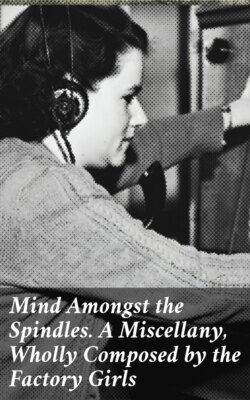Читать книгу Mind Amongst the Spindles. A Miscellany, Wholly Composed by the Factory Girls - Various - Страница 13
На сайте Литреса книга снята с продажи.
THE WESTERN ANTIQUITIES.
ОглавлениеTable of Contents
In the valley of the Mississippi, and the more southern parts of North America, are found antique curiosities and works of art, bearing the impress of cultivated intelligence. But of the race, or people, who executed them, time has left no vestige of their existence, save these monuments of their skill and knowledge. Not even a tradition whispers its guess-work, who they might be. We only know they were.
What proof and evidence do we gather from their remains, which have withstood the test of time, of their origin and probable era of their existence? That they existed centuries ago, is evident from the size which forest trees have attained, which grow upon the mounds and fortifications discovered. That they were civilized and understood the arts, is apparent from the manner of laying out and erecting their fortifications, and from various utensils of gold, copper, and iron which have occasionally been found in digging below the earth's surface. If I mistake not, I believe even glass has been found, which, if so, shows them acquainted with chemical discoveries, which are supposed to have been unknown until a period much later than the probable time of their existence. That they were not the ancestors of the race which inhabited this country at the time of its discovery by Columbus, appears conclusive from the total ignorance of the Indian tribes of all knowledge of arts and civilization, and the non-existence of any tradition of their once proud sway. That they were a mighty people is evident from the extent of territory where these antiquities are scattered. The banks of the Ohio and Mississippi tell they once lived; and even to the shore where the vast Pacific heaves its waves, there are traces of their existence. Who were they? In what period of time did they exist?
In a cave in one of the Western States, there is carved upon the walls a group of people, apparently in the act of devotion; and a rising sun is sculptured above them. From this we should infer that they were Pagans, worshipping the sun and the fabulous gods. But what most strikingly arrests the antiquarian's observation, and causes him to repeat the inquiry, "who were they?" is the habiliments of the group. One part of their habit is of the Grecian costume, and the remainder is of the Phœnicians. Were they a colony from Greece? Did they come from that land in the days of its proud glory, bringing with them a knowledge of arts, science, and philosophy? Did they, too, seek a home across the western waters, because they loved liberty in a strange land better than they loved slavery at home? Or what may be as probable, were they the descendants of some band who managed to escape the destruction of ill-fated Troy?—the descendants of a people who had called Greece a mother-country, but were sacrificed to her vindictive ire, because they were prouder to be Trojans than the descendants of Grecians? Ay, who were they? Might not America have had its Hector, its Paris, and Helen? its maidens who prayed, and its sons who fought? All this might have been. But their historians and their poets alike have perished. They have been; but the history of their existence, their origin, and their destruction, all, all are hidden by the dark chaos of oblivion. Imagination alone, from inanimate landmarks, voiceless walls, and soulless bodies, must weave the record which shall tell of their lives, their aims, origin, and final extinction.
Recently, report says, in Mexico there have been discovered several mummies, embalmed after the manner of the ancient Egyptians. If true, it carries the origin of this fated people still farther back; and we might claim them to be contemporaries with Moses and Joshua. Still, if I form my conclusions correctly from what descriptions I have perused of these Western relics of the past, I should decide that they corresponded better with the ancient Grecians, Phœnicians, or Trojans, than with the Egyptians. I repeat, I may be incorrect in my premises and deductions, but as imagination is their historian, it pleases me better to fill a world with heroes and beauties of Homer's delineations, than with those of "Pharaoh and his host."
Lisette.
